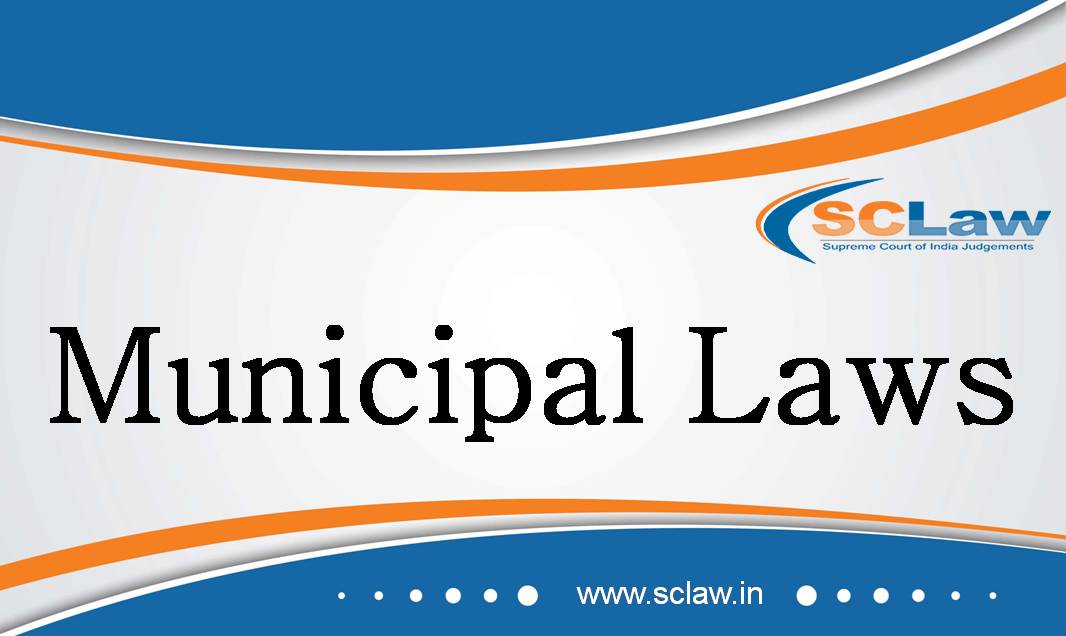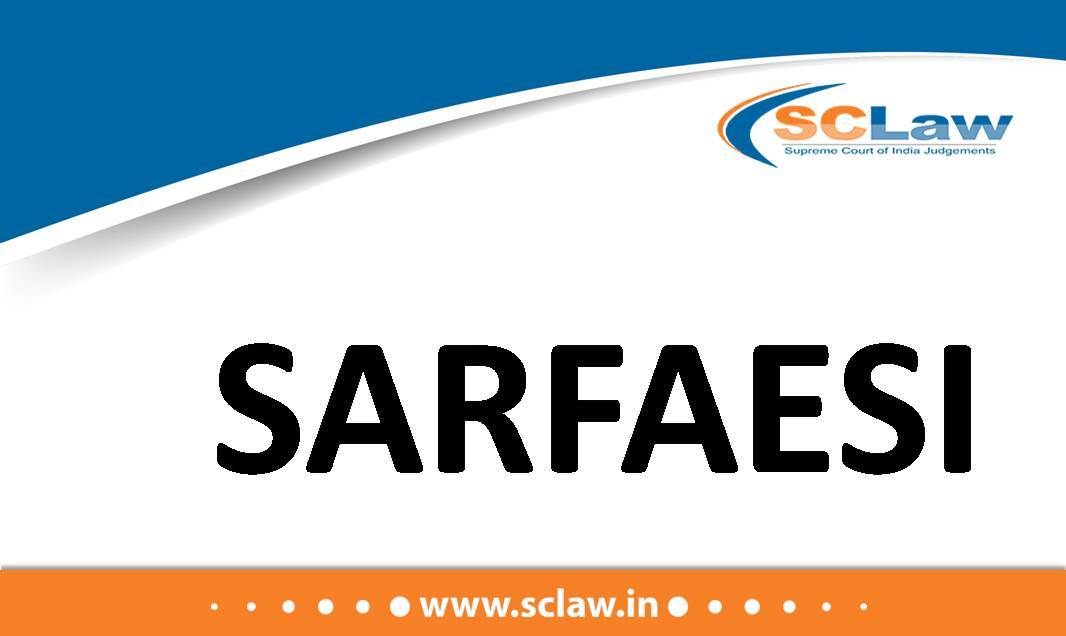HELD this court will have to apply the theory of justice and adopt a problem-solving approach. Having appointed persons and found them suitable, while creating a situation which could have been avoided, the managements will have to take up their responsibility. If imparting education is seen to be in public interest, such institutions have duties to their employees as well. Certainly, the appellants cannot be made to continue them by making a contribution towards their salary by way of aid.
SUPREME COURT OF INDIA DIVISION BENCH THE STATE OF UTTAR PRADESH AND OTHERS — Appellant Vs. PRINCIPAL ABHAY NANDAN INTER COLLEGE AND OTHERS — Respondent ( Before : Sanjay Kishan…
Rights of the Council are to administer the properties as a delegate of the Government of India and not as an owner as there were no transfer of rights in the markets in favour of the Council. Markets transferred by the Government of India to the Council have to be dealt independently and separately than the properties owned by the Council as the Council has no title over such markets as it has been asked only to manage them on behalf of the Government of India – Order of eviction upheld.
SUPREME COURT OF INDIA DIVISION BENCH NEW DELHI MUNICIPAL COUNCIL — Appellant Vs. GANGA DEVI AND ANOTHER — Respondent ( Before : Hemant Gupta and V. Ramasubramanian, JJ. ) Civil…
Summoning of accused – In the order issuing summons, the learned Magistrate has to record his satisfaction about a prima facie case against the accused -Merely because respondent Nos. 2 to 5 and 7 & 8 are the Chairman/Managing Director/Executive Director/Deputy General Manager/Planner & Executor, automatically they cannot be held vicariously liable, unless, as observed hereinabove, there are specific allegations and averments against them with respect to their individual role
SUPREME COURT OF INDIA DIVISION BENCH RAVINDRANATHA BAJPE — Appellant Vs. MANGALORE SPECIAL ECONOMIC ZONE LIMITED AND OTHERS ETC. — Respondent ( Before : M.R. Shah and A.S. Bopanna, JJ.…
(IPC) – S 302 and 120B – (CrPC) – Section 439 – Cancellation of Bail – Conspiracy – Murder – Tampering with evidence – Deceased was employed with the Intelligence Bureau – Mobile phone of the wife of the deceased was seized and it showed that she had been in constant touch with the First respondent-accused after the death of her husband – First respondent himself being an employee of the Anti-Corruption Bureau, the likelihood of the evidence being tampered with and of the witnesses being suborned cannot be discounted – surmise that the police had “developed a case” that Ketamine was administered, after four months of the incident – Conclusion that the High Court was in error in allowing the application for bail – Appeal allowed.
SUPREME COURT OF INDIA DIVISION BENCH SHRI MAHADEV MEENA — Appellant Vs. PRAVEEN RATHORE AND ANOTHER — Respondent ( Before : Dr. Dhananjaya Y. Chandrachud and BV Nagarathna, JJ. )…
Service matter – High Court was not justified and had fallen into error. This is for the reason that the information furnished under the RTI Act showing the name of the respondent at Serial No.301, having obtained 114.80 marks was the select list which was prepared for the first time, which was the subject matter of litigation; had been set aside and was therefore not reckonable. In the re-select list, the name of the respondent is shown at Serial No. 474 having obtained 109.86 marks.
SUPREME COURT OF INDIA DIVISION BENCH STATE OF ODISHA AND OTHERS — Appellant Vs. ARATI MOHAPATRA — Respondent ( Before : M.R. Shah and A.S. Bopanna, JJ. ) Civil Appeal…
Copyright Rules, 2013 – Rule 29(4) – An exercise of judicial re-drafting of Rule 29(4) was unwarranted, particularly at the interlocutory stage – High Court was also of the view that the second proviso may be resorted to as a matter of routine, instead of as an exception and that the ex post facto reporting should be enlarged to a period of fifteen days (instead of a period of twenty four hours). Such an exercise was impermissible since it would substitute a statutory rule made in exercise of the power of delegated legislation with a new regime and provision which the High Court considers more practicable
SUPREME COURT OF INDIA DIVISION BENCH SAREGAMA INDIA LIMITED — Appellant Vs. NEXT RADIO LIMITED AND OTHERS — Respondent ( Before : Dr. Dhananjaya Y. Chandrachud and BV Nagarathna, JJ.…
Reinstatement – Misconduct – Assaulting senior official – Aims and object of the appellant and the serious nature of misconduct proved against the respondent, instead of granting reinstatement, by balancing the conflicting interests, appropriate compensation needs to be awarded – Moreover, considering the nature of the misconduct proved against the respondent, the grant of reinstatement will not be in the interest of justice – Long gap of 17 years will be also one of the considerations for not granting reinstatement
SUPREME COURT OF INDIA DIVISION BENCH NATIONAL GANDHI MUSEUM — Appellant Vs. SUDHIR SHARMA — Respondent ( Before : Ajay Rastogi and Abhay S. Oka, JJ. ) Civil Appeal Nos.…
Bihar Electricity Duty Act, 1948 – Section 3(1), 6B(1) and 5A Held, While a High Court would normally not exercise its writ jurisdiction under Article 226 of the Constitution if an effective and efficacious alternate remedy is available, the existence of an alternate remedy does not by itself bar the High Court from exercising its jurisdiction in certain contingencies – Issues raised by the appellant are questions of law which require, upon a comprehensive reading of the Bihar Electricity Act, a determination of whether tax can be levied on the supply of electricity by a power generator (which also manufactures sugar)
SUPREME COURT OF INDIA FULL BENCH M/S MAGADH SUGAR AND ENERGY LIMITED — Appellant Vs. THE STATE OF BIHAR AND OTHERS — Respondent ( Before : Dr. Dhananjaya Y. Chandrachud,…
(SARFAESI) – Sections 13(1), 13(2), 13(3), 13(4), 14 and 35 – Security Interest (Enforcement) Rules, 2002 – Rules 8 and 9 – HELD Since the sale scheduled on 27.2.2012, as per the First Sale Notice dated 21.1.2012, could not be held due to the reasons attributable solely to the guarantors, there was no necessity of again following the same procedure of providing a 30 days’ clear notice.
SUPREME COURT OF INDIA FULL BENCH S. KARTHIK AND OTHERS — Appellant Vs. N. SUBHASH CHAND JAIN AND OTHERS — Respondent ( Before : L. Nageswara Rao, B.R. Gavai and…
Dishonour of cheque – Gravity of complaint under N.I. Act cannot be equated with an offence under the provisions of the Indian Penal Code, 1860 or other criminal offences – If an enhanced fine is imposed it would meet the ends of justice.
SUPREME COURT OF INDIA FULL BENCH TRIYAMBAK S. HEGDE — Appellant Vs. SRIPAD — Respondent ( Before : N.V. Ramana, CJI, Surya Kant and A.S. Bopanna, JJ. ) Criminal Appeal…















